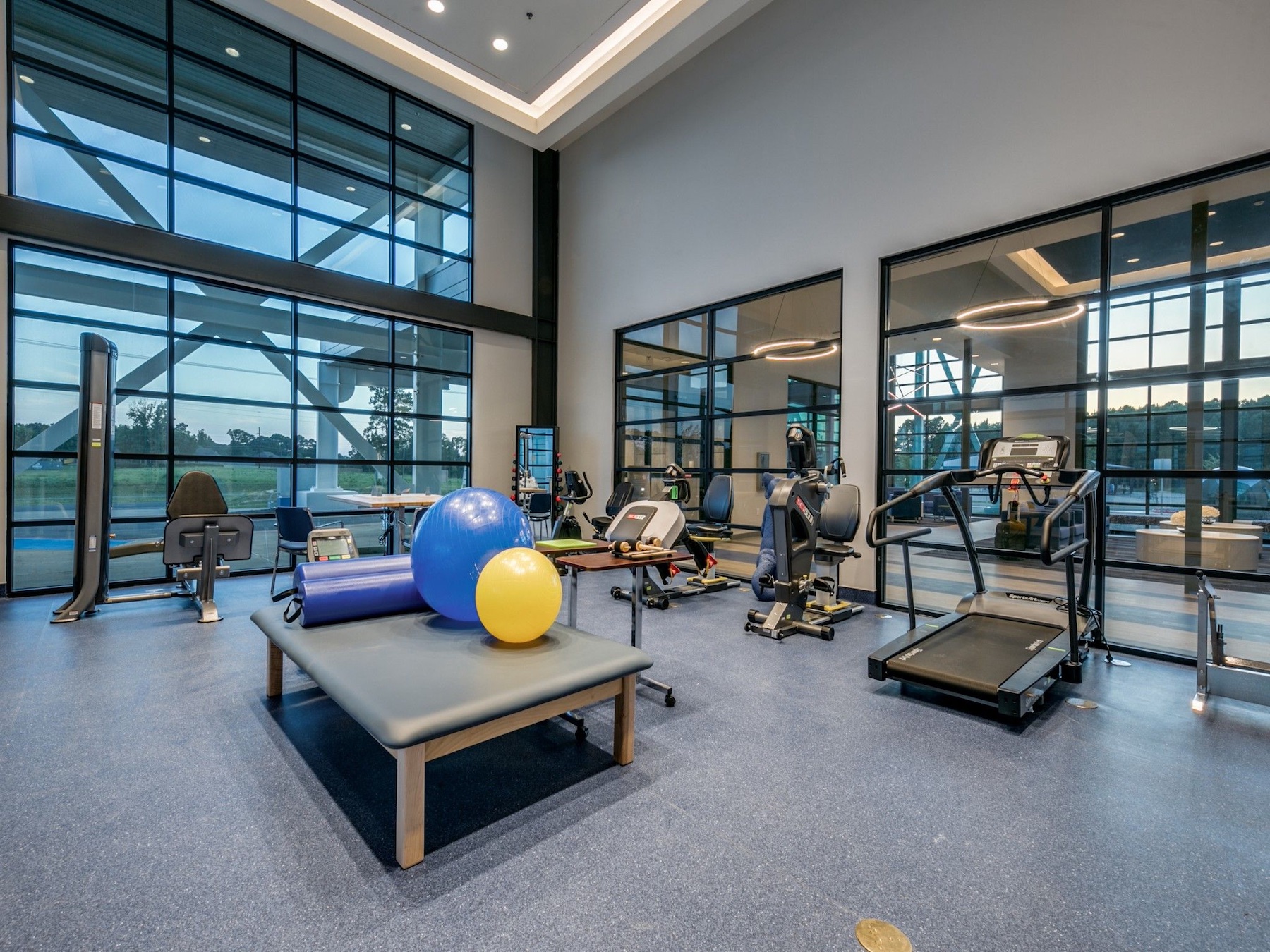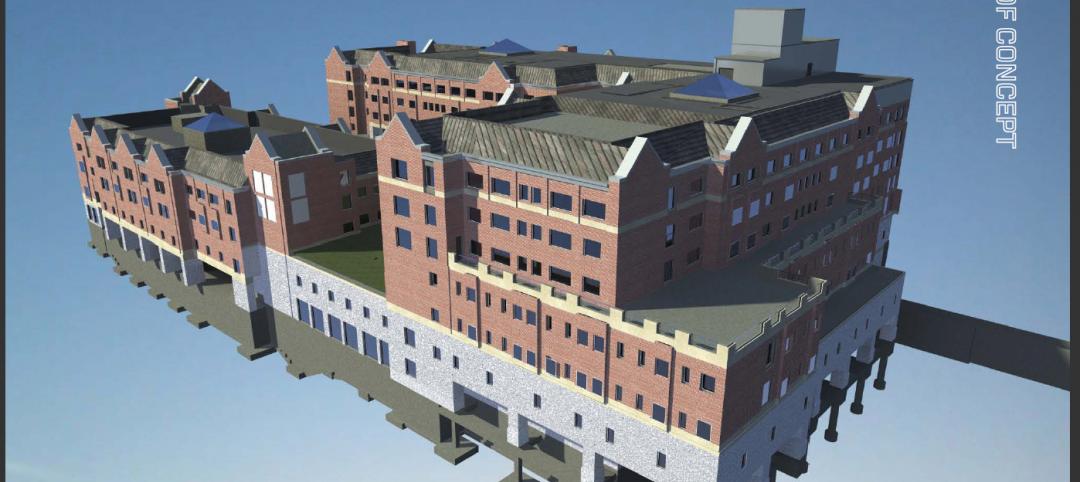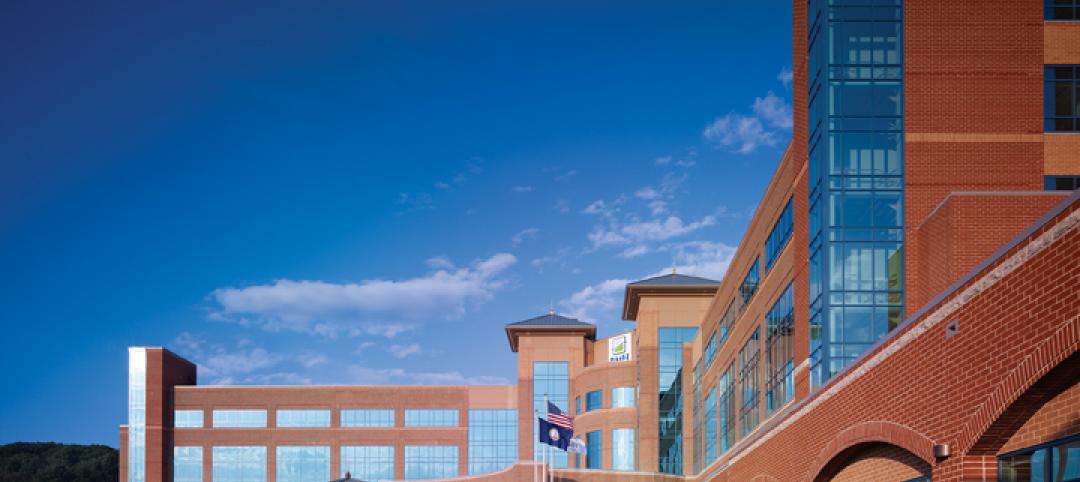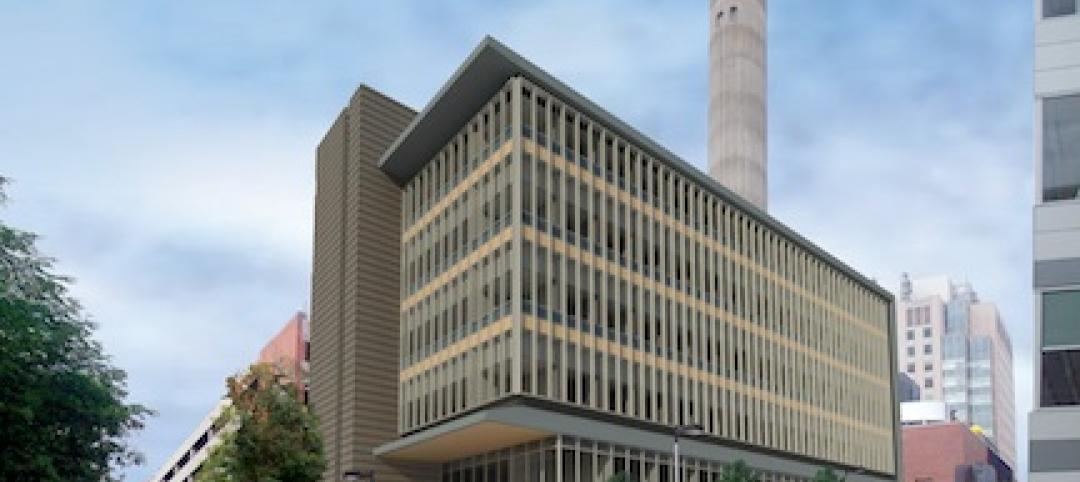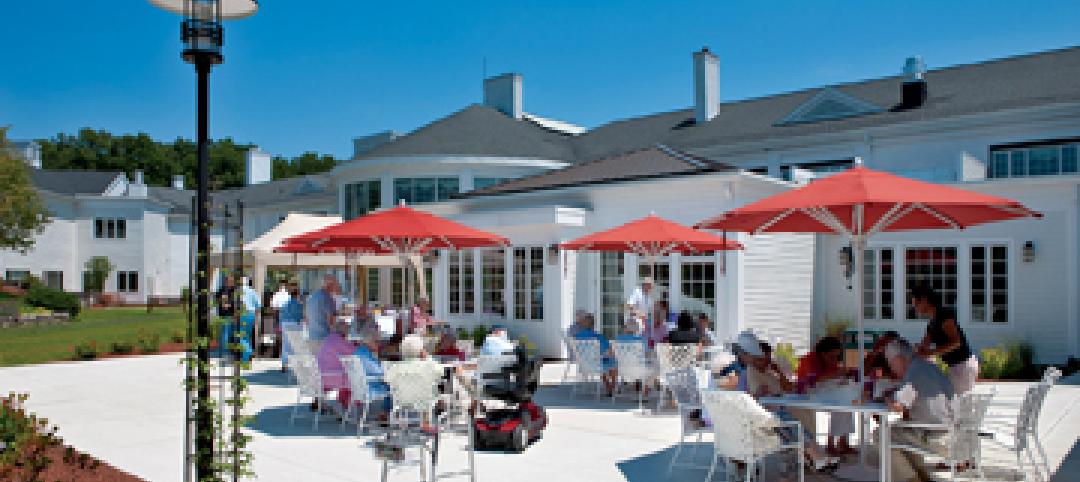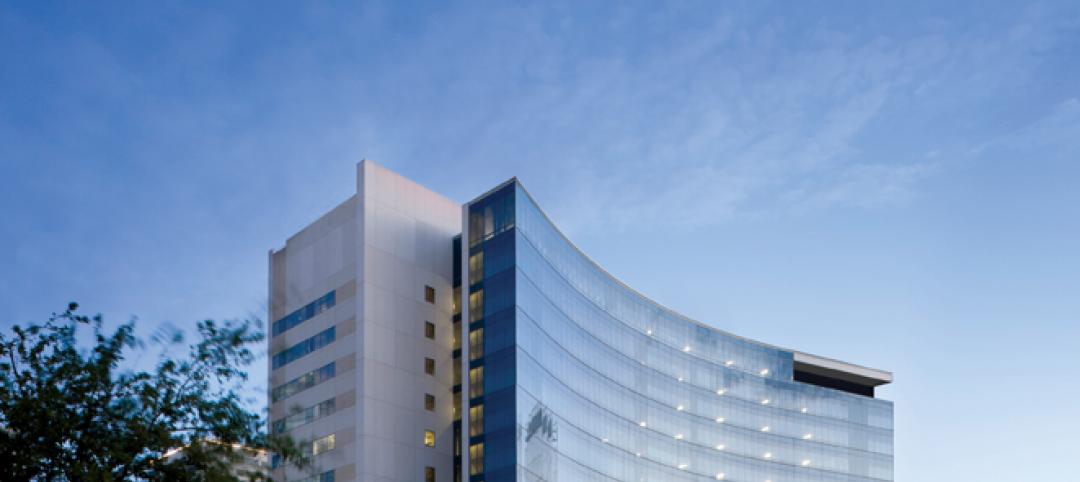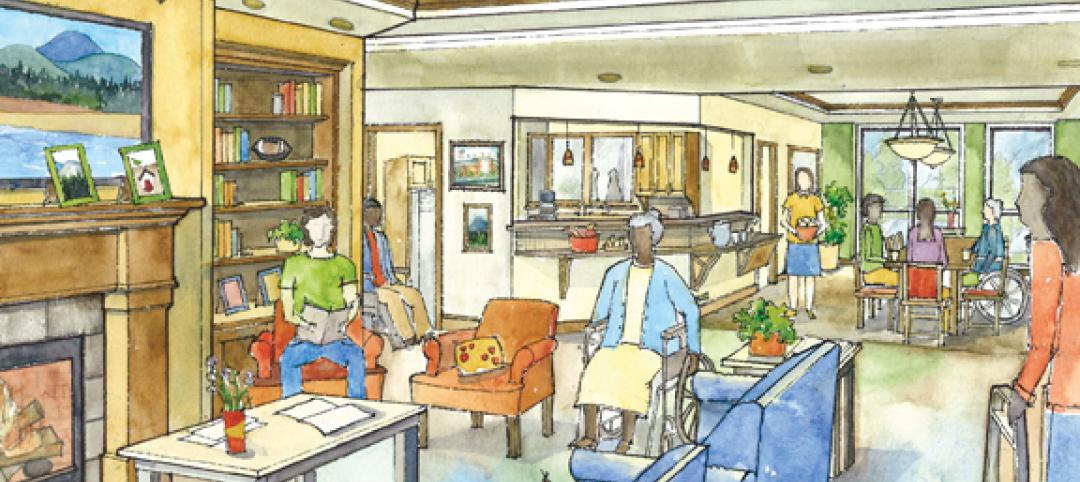In August, Dallas-based Everest Rehabilitation Hospitals revealed its plans to build a 36-bed inpatient physical rehab facility at The Villages, the massive active-adult and retirement community in Florida. That hospital will be Everest’s eighth under construction in the Sunshine State.
The 41,000-sf Villages project on 8.47 acres of land in Oxford, Fla., will cost $24 million to build. It is the latest in Everest’s construction of identical multi-specialty acute-care hospitals in several states. The hospitals serve patients recovering from stroke, brain injury, neurological conditions, trauma, spinal cord injury, speech impediments, amputation, pulmonary disease, orthopedic injury, COVID-19, and other medically complex conditions.
The hospitals are equipped with in- and outpatient physical therapy gyms, an outdoor mobility courtyard, aqua therapy, a furnished life skills training apartment with a full kitchen and bathroom, in-house dialysis, and a pharmacy. There are also gathering areas for families that include a large dining room.
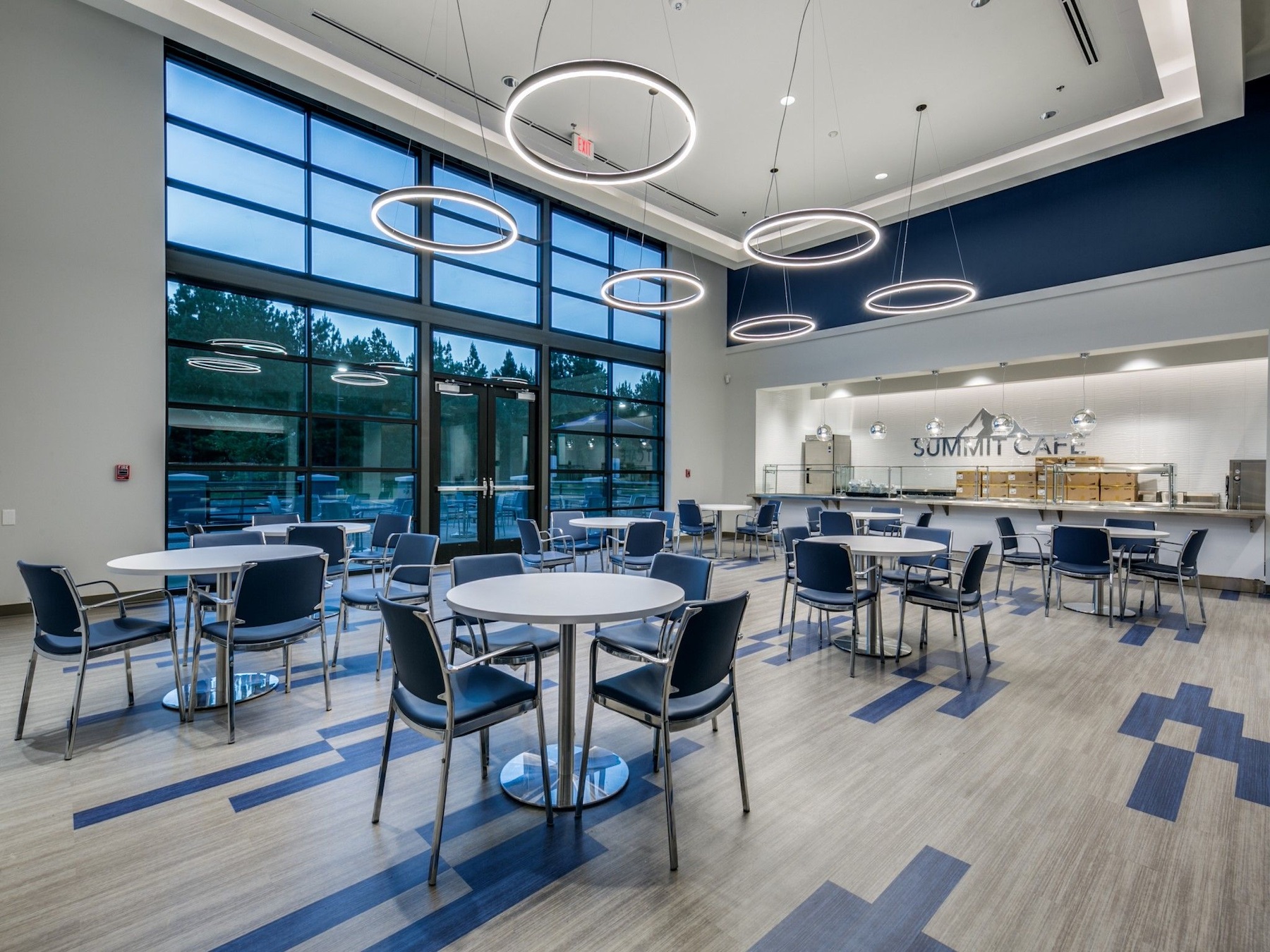
DBA Architects, based in McKinney, Texas, whose design work is heavily in the residential sector, provided the prototype design for Everest that had to be universal enough so it could be replicated to accommodate Everest’s expansion strategy. The company opened its first hospital in Longview, Texas, in June 2019 and currently has six facilities operating in Texas, Oklahoma, Arkansas, and Ohio. Everest has another 10 hospitals in various stages of design and construction, with its facility in El Paso, Texas, scheduled to open by the end of this year, and another in San Antonio opening in the first quarter of 2023.
Bryan Moore, DBA Architects’ CEO and President, tells BD+C that Everest’s plan has been to grow as rapidly as possible to meet increasing physical rehab needs. That growth is being propelled by entrepreneur Marc Sparks, Everest’s Co-founder and President of the private-equity firm Timber Creek Capital, which is Everest’s developer. (According to his online bio, Sparks has been involved in over 60 startups, “some outrageously successful, others downright disasters.”)
Sparks has stated that he wanted Everest’s ambiance to be more hotel-like and service oriented than institutional. “What Marc didn’t want was a hospital that looked like a place where people go to die,” says Moore. So Everest Rehab’s design and programming include art work, natural light, high ceilings, outdoor dining, room service, and social events.
A plan for expansion: Everest Rehabilitation Hospitals
Repetitive design is often frowned upon by architects, but it certainly has its place: ask any data center or multifamily housing developer. And Everest, says Moore, was attracted to this kind of design’s economies of scale, so that the hospitals could offer “the same menus, same therapies, and medications.” Moore describes this process as “cut and paste,” although he is quick to add that it DBA still had plenty of design leeway.
There’s no prefabrication in the construction of Everest’s hospitals, although Moore says that prefab is now being considered for the patients’ wing as Everest plots its expansion. (Everest’s buildings are expandable to 48 beds.)
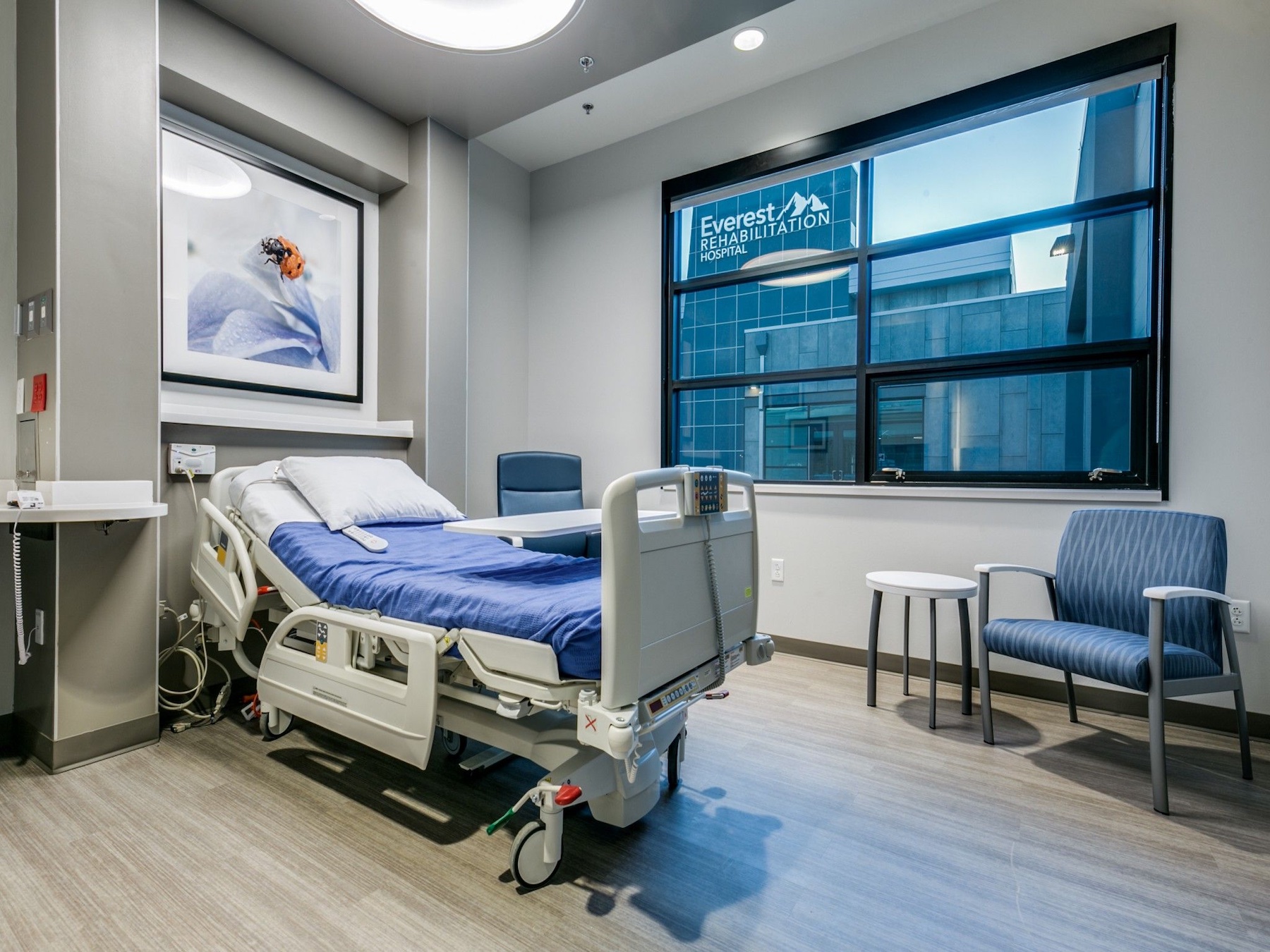
Everest hasn’t stated yet how many hospitals it intends to build and operate beyond the 16 it already has opened or are under construction. Everest’s business model uses an actuarial program to determine need based on the number of rehab hospitals and beds within a 100-mile radius of a given market. Last year, the Florida market “opened up,” says Moore, when the DeSantis administration did away with a restriction that had required arduous proof of need before a new healthcare facility could be built.
Among the four contractors it has used to build its hospitals is H.J. High Construction, which Moore says has experience building hospitals in Florida.
Moore and Sparks met when they were working on a homeless shelter project for Samaritan Inn. When Sparks shared his vision for Everest’s rehabilitation hospitals, Moore was ready to jump in: DBA was already doing a lot of repetitive design for its multifamily clients. And back in the late 1980s, the firm was involved in the prototype design business for fast food franchises.
Related Stories
| May 5, 2011
Hospitals launch quiet campaigns to drown out noise of modern medicine
Worldwide, sound levels inside hospitals average 72 decibels during the day and 60 decibels at night, which far exceeds the standard of 40 decibels or less, set by the World Health Organization. The culprit: modern medicine. In response, hospitals throughout Illinois and the U.S. are launching "quiet campaigns" that include eliminating intercom paging, replacing metal trash cans, installing sound-absorbing flooring and paneling, and dimming lights at night to remind staff to keep their voices down.
| Apr 14, 2011
USGBC debuts LEED for Healthcare
The U.S. Green Building Council (USGBC) introduces its latest green building rating system, LEED for Healthcare. The rating system guides the design and construction of both new buildings and major renovations of existing buildings, and can be applied to inpatient, outpatient and licensed long-term care facilities, medical offices, assisted living facilities and medical education and research centers.
| Apr 13, 2011
Virginia hospital’s prescription for green construction: LEED Gold
Rockingham Memorial Hospital in Harrisonburg, Va., is the commonwealth’s first inpatient healthcare facility to earn LEED Gold. The 630,000-sf facility was designed by Earl Swensson Associates, with commissioning consultant SSRCx, both of Nashville.
| Apr 12, 2011
Mental hospital in Boston redeveloped as healthcare complex
An abandoned state mental health facility in Boston’s prestigious Longwood Medical Area is being transformed into the Mass Mental Health Center, a four-building mixed-use complex that includes a mental health day hospital, a clinical and office building, a medical research facility for Brigham and Women’s Hospital, and a residential facility.
| Mar 17, 2011
Perkins Eastman launches The Green House prototype design package
Design and architecture firm Perkins Eastman is pleased to join The Green House project and NCB Capital Impact in announcing the launch of The Green House Prototype Design Package. The Prototype will help providers develop small home senior living communities with greater efficiency and cost savings—all to the standards of care developed by The Green House project.
| Mar 14, 2011
Renowned sustainable architect Charles D. Knight to lead Cannon Design’s Phoenix office
Cannon Design is pleased to announce that Charles D. Knight, AIA, CID, LEED AP, has joined the firm as principal. Knight will serve as the leader of the Phoenix office with a focus on advancing the firm’s healthcare practice. Knight brings over 25 years of experience and is an internationally recognized architect who has won numerous awards for his unique contributions to the sustainable and humanistic design of healthcare facilities.
| Mar 11, 2011
Renovation energizes retirement community in Massachusetts
The 12-year-old Edgewood Retirement Community in Andover, Mass., underwent a major 40,000-sf expansion and renovation that added 60 patient care beds in the long-term care unit, a new 17,000-sf, 40-bed cognitive impairment unit, and an 80-seat informal dining bistro.
| Mar 11, 2011
Research facility added to Texas Medical Center
Situated on the Texas Medical Center’s North Campus in Houston, the new Methodist Hospital Research Institute is a 12-story, 440,000-sf facility dedicated to translational research. Designed by New York City-based Kohn Pedersen Fox, with healthcare, science, and technology firm WHR Architects, Houston, the building has open, flexible labs, offices, and amenities for use by 90 principal investigators and 800 post-doc trainees and staff.
| Mar 11, 2011
Mixed-income retirement community in Maryland based on holistic care
The Green House Residences at Stadium Place in Waverly, Md., is a five-story, 40,600-sf, mixed-income retirement community based on a holistic continuum of care concept developed by Dr. Bill Thomas. Each of the four residential floors houses a self-contained home for 12 residents that includes 12 bedrooms/baths organized around a common living/social area called the “hearth,” which includes a kitchen, living room with fireplace, and dining area.


